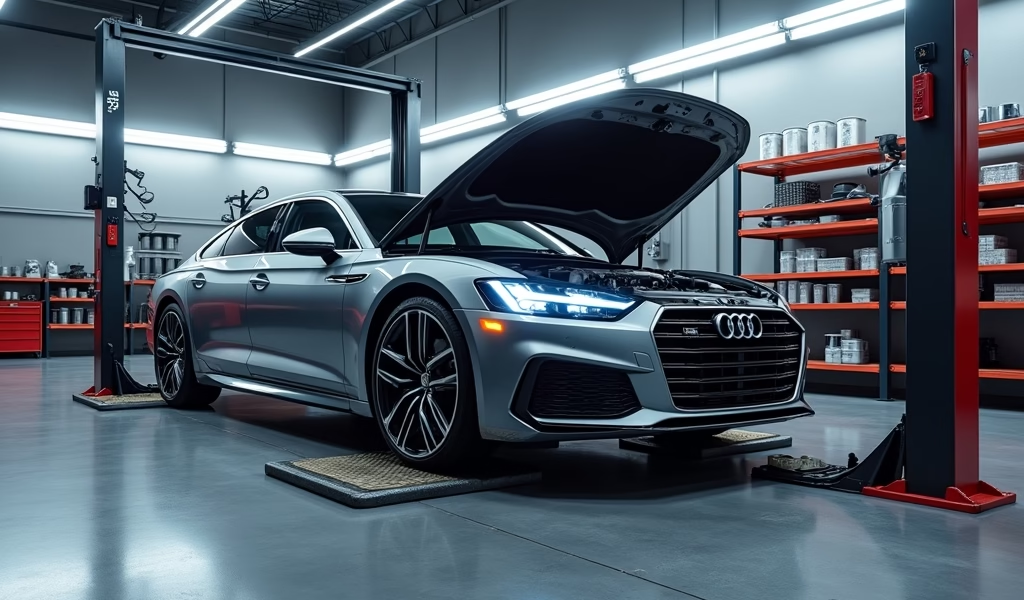Overview
The article presents five crucial strategies for handling car accident legal cases: selecting a specialized attorney, thorough documentation, strategic insurance navigation, understanding all types of compensation, and knowing when to settle versus going to trial. These proven approaches help accident victims transform from vulnerable positions to empowered advocates in their recovery journey, with emphasis on immediate action and proper preparation to secure fair compensation.
Table of Contents
- Understanding Your Rights After an Auto Accident
- The First Proven Fix – Selecting the Right Attorney
- The Second Proven Fix – Proper Documentation Strategies
- The Third Proven Fix – Navigating Insurance Claims
- The Fourth Proven Fix – Understanding Compensation Types
- The Fifth Proven Fix – Settlement vs. Trial Strategies
- Conclusion
- Frequently Asked Questions
The screech of tires, the crunch of metal, and that heart-stopping moment when everything changes—car accidents happen in seconds, but their effects can linger for years. I’ve been in the auto repair business for over 20 years, and I’ve seen how a lawyer car accident case can make or break someone’s recovery journey. It’s not just about fixing vehicles; it’s about fixing lives.
Each year, roughly 6 million car accidents occur across America. Behind each statistic is someone whose daily commute turned into a life-altering event. As someone who’s worked with countless post-accident vehicles (and their owners), I’ve gained unique insight into what works when navigating the aftermath.
Let me share the five proven fixes that can make all the difference when you’re dealing with the legal side of a car accident. These aren’t just theoretical tips—they’re practical solutions I’ve seen work time and again for people just like you.
Understanding Your Rights After an Auto Accident
When that airbag deploys and you’re sitting dazed in your vehicle, knowing your rights might be the furthest thing from your mind. But this moment sets the stage for everything that follows.
First things first: safety comes before paperwork. Make sure everyone is okay and move to a secure spot if possible. Then call emergency services—even for what seems like a minor fender bender. I’ve seen “small” accidents reveal major damage days later, both to vehicles and people.
Here’s what needs to happen at the scene:
- Exchange contact and insurance information with everyone involved
- Take photos of all vehicles from multiple angles
- Gather witness information (this can be worth its weight in gold later)
- Never apologize or admit fault (even if you think you might be responsible)
- Call the police and get an official report filed
One of the biggest mistakes I see is people downplaying their injuries. That neck might feel “just a little stiff” now, but trust me—whiplash and other soft tissue injuries often worsen dramatically over the next 24-72 hours. Get checked out, even if you think you’re fine.
Your right to seek medical attention isn’t just about health—it creates an official record that connects your injuries directly to the accident. This becomes crucial when dealing with insurance companies or if you need to pursue a car accident legal claim.
Remember, insurance adjusters work for the insurance company, not for you. Their job is to minimize payouts. You have the right to speak with an attorney before giving any recorded statements or accepting any settlements.
The First Proven Fix – Selecting the Right Attorney
Finding the right lawyer for your car accident case is like finding the right mechanic for your vehicle—specialization matters enormously. You wouldn’t take your Ferrari to someone who only works on pickup trucks, right?

When seeking legal representation, look for someone who specializes in auto accidents specifically. General practice attorneys might be excellent for writing wills or handling divorces, but car accident cases involve specialized knowledge of traffic laws, insurance policies, and injury compensation that requires focused expertise.
Here’s what to look for in a quality car crash attorney:
- Experience specifically with auto accident cases similar to yours
- Clear communication style (if you can’t understand them during the consultation, you’ll struggle throughout your case)
- Transparent fee structure with no surprise costs
- Resources to properly investigate your accident (including accident reconstruction experts if needed)
- A track record of successful settlements and verdicts
Don’t be shy about asking for specific examples of similar cases they’ve handled. A good attorney should be able to explain how they approached cases like yours and what outcomes they achieved. According to the American Bar Association, specialized legal knowledge often leads to more efficient and effective representation.
Personal referrals can be gold. If someone you trust had a positive experience with a car accident attorney, that’s a good starting point. But still do your homework—check online reviews, disciplinary records, and schedule a consultation before making your decision.
Most car accident attorneys offer free initial consultations. Use this time wisely by coming prepared with questions. The right lawyer should make you feel heard and valued, not like you’re just another case file.
The Second Proven Fix – Proper Documentation Strategies
As a mechanic, I document everything—every worn part, every fluid level, every unusual sound. This meticulous record-keeping has saved countless customers from preventable breakdowns. The same principle applies to your car accident case.
Documentation is the engine that powers your claim. Without it, even the best attorney will struggle to get you fair compensation. Start collecting evidence immediately after the accident and keep going throughout your recovery process.
Essential documentation includes:
- Police report (request a copy as soon as possible)
- Photos of the accident scene, all vehicles involved, and your injuries
- Medical records from all providers who treat you
- Receipts for all expenses related to the accident
- Repair estimates and bills for vehicle damage
- Records of missed work and lost wages
- Daily journal documenting pain levels and how injuries affect your daily life
Technology has made documentation easier than ever. Smartphone apps can help organize photos and notes. Dashcams provide objective evidence of driving events, and wearable devices can track physical limitations during recovery. I often recommend my customers invest in dashcams—they’re like insurance policies that can pay for themselves many times over in a single incident.
A tip from the garage that applies perfectly to accident cases: create a dedicated folder (physical or digital) for all accident-related paperwork. Everything goes in one place, organized chronologically. This simple system prevents crucial documents from vanishing when you need them most.
Remember that evidence deteriorates quickly. Skid marks fade, vehicles get repaired, and witnesses’ memories blur. The sooner you or your motor vehicle accident lawyers can gather and preserve evidence, the stronger your case will be.
The Third Proven Fix – Navigating Insurance Claims
Insurance adjusters often present themselves as your advocates, but let’s be clear: their primary responsibility is to their employer, not to you. Just as you’d get a second opinion before making major repairs to your vehicle, approach insurance offers with healthy skepticism.
When dealing with insurance companies after an accident:
- Be polite but guarded in all communications
- Never give recorded statements without consulting your attorney first
- Don’t accept the first settlement offer (it’s almost always a lowball figure)
- Keep detailed records of every conversation, including dates, times, and names
- Understand that insurance companies profit by paying out less than they take in
One of the most common tactics I see is the “quick settlement offer.” The adjuster calls within days of the accident, expressing concern and offering what seems like a generous sum to settle immediately. This is like offering a band-aid for a wound that might require surgery—it doesn’t account for complications that often develop days or weeks later.
According to the Insurance Information Institute, many accident victims don’t fully understand their coverage or rights when filing claims. This knowledge gap benefits insurance companies, not claimants.
I’ve seen customers accept quick settlements for vehicle damage, only to discover hidden structural issues later. The same happens with injuries. What seems like minor whiplash might develop into chronic pain requiring years of treatment. Once you accept a settlement and sign a release, you typically cannot go back for more compensation, even if your condition worsens.
Your best tool for navigating insurance claims is patience backed by professional guidance. Let your attorney handle communications with the insurance company. They speak the language, understand the tactics, and know what your case is truly worth.
The Fourth Proven Fix – Understanding Compensation Types
When I diagnose a vehicle, I look beyond the obvious problem to understand the full scope of damage. The same principle applies to car accident compensation—it goes far beyond just fixing your car and paying this month’s medical bills.
Comprehensive compensation should address all aspects of your losses:
- Medical expenses (current and anticipated future care)
- Vehicle repair or replacement costs
- Lost wages from missed work
- Reduced earning capacity if injuries affect your ability to work
- Pain and suffering
- Emotional distress
- Loss of enjoyment of life
- Rehabilitation costs
The most overlooked aspect is future damages. Just as certain vehicle damages can cause progressive problems if not properly addressed, many accident injuries have long-term consequences. Traumatic brain injuries, spinal damage, and even seemingly minor soft tissue injuries can require ongoing treatment or result in permanent limitations.
I remember a customer named Mike who suffered what seemed like a minor back injury in a rear-end collision. The insurance company offered $5,000 to cover his initial treatment. Fortunately, Mike consulted an attorney before accepting. Six months later, he needed spinal surgery that cost over $80,000, plus months of lost wages during recovery. By understanding the potential long-term impact of his injury, he secured a settlement that covered his actual needs.
Don’t fall into the trap of focusing only on immediate costs. A proper evaluation of your case should include expert medical opinions about your prognosis and future care needs. Your attorney should work with medical professionals to fully understand and document the long-term impact of your injuries.
The Fifth Proven Fix – Settlement vs. Trial Strategies

In my repair shop, we always look for the most efficient way to fix a problem. Sometimes that means a quick adjustment; other times it requires dismantling the entire system. Similarly, most car accident cases (about 95%) settle before trial, but knowing when to settle and when to press forward is crucial.
Settlement advantages include:
- Faster resolution and quicker access to compensation
- Lower legal costs
- Guaranteed payment (as opposed to the uncertainty of a trial)
- Less emotional stress and public exposure
- More control over the outcome
However, some situations call for taking your case to court:
- When settlement offers remain unreasonably low despite clear liability
- If insurance companies act in bad faith
- When the full extent of injuries is disputed
- If complex liability issues need judicial determination
Think of settlement negotiations like haggling over a repair estimate. The initial offer is rarely the final price, and knowing the true value of what you’re discussing gives you negotiating power. Your attorney should approach settlement discussions with comprehensive documentation, expert opinions when necessary, and clear valuation of your case based on similar precedents.
I’ve seen cases where clients were tempted to accept early offers out of financial necessity, only to secure substantially higher settlements by being patient and properly preparing their cases. A good lawyer will help you weigh immediate needs against long-term benefits.
If settlement negotiations fail, proper preparation for court becomes essential. This includes organizing witness testimony, preparing you for questioning, developing visual presentations of evidence, and crafting compelling narratives that connect the technical aspects of your case to the human impact of your injuries.
Remember that even when preparing for trial, settlement remains possible right up until the verdict. In fact, many cases settle “on the courthouse steps” when the reality of trial becomes imminent.
Conclusion
Just as a well-maintained vehicle can better withstand the impact of a collision, being well-prepared legally can help you navigate the aftermath of a car accident with greater resilience and better results.
These five proven fixes—selecting the right attorney, documenting thoroughly, navigating insurance strategically, understanding compensation options, and developing appropriate settlement strategies—transform you from victim to advocate in your own recovery journey.
For those recently involved in accidents, immediate action is crucial. Consult with a specialized attorney before making statements to insurance companies, follow medical advice diligently, and begin organizing documentation as soon as possible. Every day matters when building a strong case.
Looking forward, preventative measures include understanding your insurance coverage before you need it, keeping emergency contact information accessible, and installing dashcams for added protection. While we can’t prevent every accident, we can certainly be better prepared when they happen.
Your journey to recovery might seem overwhelming now, but with the right approach and support, you can navigate this challenging road with confidence. Remember: in both car repairs and legal matters, quality attention to detail makes all the difference.
Frequently Asked Questions
How soon after a car accident should I contact a lawyer?
You should contact a lawyer as soon as possible after seeking medical attention. Early legal consultation prevents critical mistakes and ensures evidence is preserved properly.
What if I can’t afford an attorney for my car accident case?
Most car accident attorneys work on a contingency fee basis, meaning they only get paid if you win your case. The initial consultation is typically free.
Should I talk to the other driver’s insurance company?
It’s best to avoid speaking directly with the other driver’s insurance company. Direct them to your attorney to prevent statements that could harm your claim.
How long do I have to file a lawsuit after a car accident?
The statute of limitations varies by state, ranging from one to six years. Consult an attorney promptly to ensure you don’t miss critical deadlines.
What if the accident was partially my fault?
Many states follow comparative negligence rules, meaning you may still recover damages even if partially at fault. The compensation would be reduced by your percentage of fault.

